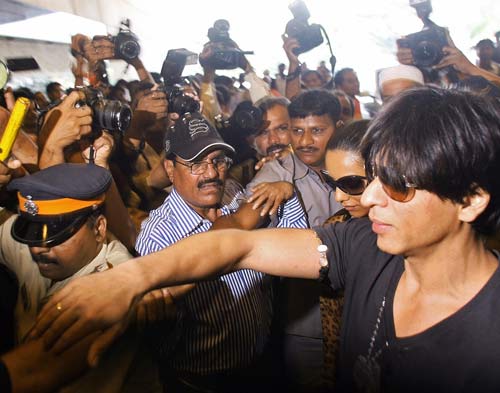Bollywood up in arms as India’s film certification appeals process is scrapped without warning
Industry insiders fear the move will delay releases, deprive grassroots filmmakers of a platform for airing their grievances and lead to more censorship, as Peony Hirwani reports


When India’s main film certification body refused to allow a firebrand feminist film to be aired a few years back, an appellate body came to its rescue – acting as it had done so many times in its chequered history of four decades, settling disputes in one of the world’s largest and most prolific film industries.
Back in 2017 director Alankrita Shrivastava reached out to the tribunal which suggested a few changes and ordered the main central board to grant an “A” (adult) certification to Lipstick Under My Burkha, after which the film was released.
However, filmmakers are now worried that the justice ministry’s move to abolish the Film Certificate Appellate Tribunal (FCAT) without any prior warning will expose them to India’s lugubrious court processes and litigation costs. Producers will now have to approach the high court instead of FCAT for “redressal of their grievances.”
Formed in 1983, the body was designed to hear appeals of filmmakers affected by Central Board of Film Certification (CBFC) orders. Furthermore, it helped the release of dozens of films.
“Making a film is an emotionally and physically draining process. It takes a lot from us as filmmakers and creators to put ourselves out there,” filmmaker and producer Jai Mehta toldThe Independent.
“I haven’t personally made a theatrical film yet, but I’ve seen the struggles of filmmakers I’ve assisted undergo [the] rigorous scrutiny of getting their films approved,” he said.
“The CBFC, although an essential process, was always demoralising. The fact that the certification process became a censorship process is what hurt the most. It dumbed down years of their hard work to fear, politics, and sentimentality,” he added.
“The fact that a statutory body such as the FCAT was shut down over a month ago without any notice or any discussion of any sort and most people, including me, in the industry barely knew about it, that is what astonishes me,” he said.
“Did anyone see this coming?”
Mehta said it was the “systematic gagging of our freedom of expression” and the “slow death of art in our country.”
“We must not let this happen,” he said.
Indian filmmaker Hansal Mehta also took to Twitter stating that abolishing the tribunal is “arbitrary and restrictive.”
He wrote: “Do the high courts have a lot of time to address film certification grievances? How many film producers will have the means to approach the courts? The FCAT discontinuation feels arbitrary and is definitely restrictive. Why this unfortunate timing? Why take this decision at all?”
Director Vishal Bharadwaj tweeted: “Such a sad day for cinema.”
Bollywood, which has faced government ire over content in the past, has come under increased scrutiny in recent months after a series of complaints over films that were said to have “hurt people’s religious sentiments”. The Hindi film industry, along with global video streaming services such as Netflix and Amazon Inc, are treading cautiously with scripts to avoid litigation in India — one of their largest growth markets.
A tribunal such as the FCAT provided a platform to ordinary filmmakers without the backing of huge production houses to appeal arbitrary cuts and certifications without having to go through the circuitous route of litigation. Since it had a panel of experts from the industry, filmmakers said they were better suited to hear disputes about films than judges in the Indian court system.
Sumit Purohit, an editor and writer known for his work in the drama series Scam 1992, said: “Filmmakers are surely not happy with CBFC cuts. It just makes the whole process longer and costlier. Furthermore, I’m sure courts have more important things to do than deciding what adults can watch or not.”
In 2016, Indian film director Anurag Kashyap appealed to FCAT when the central board refused to give his film Udta Punjab clearance for release.
Earlier this year, the government introduced an additional three-tier mechanism for controlling digital news media and streaming platforms such as Netflix, Amazon Prime, and Disney Hotstar.
The new rules began a debate about self-censorship of content. For instance, Netflix India deleted some parts from Vikings while Amazon Prime Videos removed parts of the movie, A Death in the Gunj.
“The reason that most independent filmmakers prefer to go online is because the OTT (streaming) platforms act as a safety net. They can be assured that the government won’t play foul and take their art down. If the government steps in now, these creators or artists might be under constant threat if they are being vocal about unpleasant truths,” Samya Khanna, an aspiring director, said.
Join our commenting forum
Join thought-provoking conversations, follow other Independent readers and see their replies
Comments
Bookmark popover
Removed from bookmarks